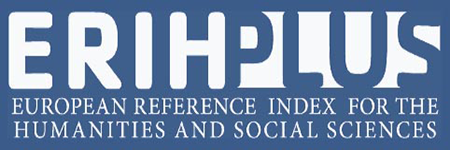Archives - Page 10
-

Perspectives on health in Central America
No. 25 (1993)With the publication of the magazine "Perspectivas de la Salud en Centroamérica", the Central American Institute of Public Administration (ICAP), strengthens an informative and multiplying space of topics in the field of health services management and innovation of care models, mentioning some concrete actions carried out by ICAP, as a response to the regional problems in the field of health. In this sense, an impact approach is included, such as the application of the precepts of total quality to health services, as an administrative strategy for the success of organizations in the sector, in the search for alternatives to improve health investment and competitiveness.
The conception of positive and productive health has, as a prerequisite, its promotion from an integral and social perspective, an approach shared by the authors in the works presented in this document. This effort is framed within the area of work of ICAP Health Management, and constitutes one more input for the development of applied administrative research and the transfer of experiences, mainly among Central American countries.
As an example of health promotion with socio-environmental projection, one of the authors addresses the need to mobilize health services to adult workplaces. The feasibility of combining the actions of the State, private enterprise and the individual in the prevention of lethal diseases such as cardiovascular disease is also discussed. The concern of the region's political leaders in designing and implementing health promotion policies, expressed in the different forums and meetings of the Central American Health Sector, is highlighted.
It should be noted that the works agree on the strategic need to train professionals in charge of health services in health management, so that they can develop skills that will enable them to maneuver the tangible and intangible forces of their respective organizations, to make them more effective, efficient and effective. All the above components are systematized in proposals for new models of care, as an alternative to adapt health systems to the new socio-political and economic contexts; including privatization in the provision of services, a path which, despite its political and social risk, is still an answer for certain social strata. All these approaches are supported by the demographic, social and economic indicators of the region.
The purpose of this contribution is to stimulate scholars in the region to participate in the discussion on the health perspectives of our countries.
-

International trade facilitation
No. 24 (1993)International trade has been identified as the main engine of development during the 1990s and the countries of the Central American region must necessarily respond to its demands and opportunities. In this sense, serious efforts have been made to increase the productivity of our resources and offer competitive products in terms of quality and price, as well as to manage the conditions and application of trade liberalization.
However, with respect to trade facilitation, the region suffers from a series of deficiencies that limit and harm it during this period of insertion into economic globalization. A true revolution in these services must be adopted soon in order to adapt to the demands of the international market if it is to survive in it.
Central America faces two alternatives. One is to be an almost passive recipient of the new ways of organizing trade and depend on foreign entities that will enjoy the incentives and benefits. The other is to take advantage of what the region already has and compete aggressively for the significant proportion of the final price of products that services represent.
Indeed, we are facing a complex situation generated by the opening of our economies within the framework of adjustment and stabilization and the formation of regional trade blocs, which imply that Central American countries will have to compete at a disadvantage with austerity of resources, within sophisticated economic currents, based on capital intensive methods and high technology.
Given the importance of these events, ICAP has initiated a number of activities to support the trade improvement efforts being made by governments. Among them is the magazine we are making available to you today, which contains the conferences of the Regional Seminar on Facilitation of Intra- and Extra-regional Trade Management in the Framework of the New Integration, held by the Central American Institute of Public Administration, ICAP, in September 1992, with the support of the Regional Office of Scientific and Technical Cooperation for Central America, of the Ministry of Foreign Affairs of the Government of France. It provided an opportunity to learn about and discuss the considerable transformations that will take place in Central America in terms of the ways of organizing international trade services, their technologies and rules of the game.
It is extremely important for ICAP to address this topic because of the relevance of international trade management in the Institute's member countries, at a time when our region is consolidating democracy and peace and seeking to promote its development on the basis of economic openness and structural adjustment, tasks for which, undoubtedly, the integration and facilitation of international trade are decisive.
-

Regional Integration on the Move
No. 22-23 (1992)The rupture of Central American integration in 1969, as a result of the crisis generated by the commercial bias and the concentration of investment in a few countries of the pact, which broke out with the Honduras-El Salvador war, caused a terrible disconcert in Central America and stimulated the dissonant theses with integration, Then the prevailing circumstances in the eighties, of economic, social and political crisis, deepened that vision, as it seemed that the prevailing trend would be the extreme atomization of the Central American countries.
In May 1986, the Central American Presidents met in Esquipulas, Guatemala, in a historic meeting called "Esquipulas I" to discuss regional problems related to the pacification process, democratization and economic development.
It was after the Esquipulas Summit that interest in integration began to take shape again. Since then, it appeared as an agenda item in almost all the Presidential Meetings and the debate began in various opinion forums.
At first, implementation and democratization occupied a privileged place in the Presidential Meetings; however, as détente was achieved, regional integration became more and more important, until it finally became the main focus of discussions and agreements.
Precisely, as of the Seventh Meeting, held in Montelimar, Nicaragua, in April 1990, they agreed to resume for the next Meeting; a) the restoration, strengthening and reactivation of regional economic integration b) the evolution towards an integrated productive system at a regional level.
In the "Declaration of Antigua", in June 1990, it is contemplated to "restore and strengthen the process of integration and the organizations, with the aspiration of forming the Economic Community of the Isthmus". It was at this meeting that the creation of the Central American Economic Action Plan (PAECA) was approved to fulfill the commitments of economic and social development. The new concept perceives integration as one of the strategies to expand the regional market and join efforts to negotiate a better insertion in the international market.
The integration project took shape when the "Tegucigalpa Protocol" (December 1991) contemplated the creation of the Central American Integration System (SICA), which will be the key structure for the new regional integration. This scheme was finally approved at the Panama Summit Meeting, held in December 1992. In this framework, Central America is defined as an integrating community and SICA, as such, will be the legal and institutional framework for the new integration. It is hoped, based on this new concept, to achieve an environment of peace, freedom, democracy and development in these countries.
It goes without saying that the new approach to integration is a challenge for the new political, economic and social leaders; and whatever the future outcome, it will be part of the history of Central America. This is why we believe that the new Central American integration represents a real challenge.
-

Public Investment Perspectives in Central America
No. 20-21 (1991)Between October 30 and November 1, 1991, the Central American Institute of Public Administration (ICAP) held the First Conference on "Prospects for Public Investment in Central America" in the context of stabilization and structural adjustment programs.
The central themes discussed at the Conference were as follows:
1. Stabilization and structural adjustment policies.
The objective was to address the fundamental aspects of stabilization and structural adjustment policies, i.e., the background, actors, what type of economic policy instruments have been applied and what the economic, social and political effects have been, as well as their impact on public investments.
2. Restructuring and modernization of the administrative apparatus of the State within the framework of current policies and sustainable development.
The objective of this topic was to address the most important aspects of the economic policies linked to the restructuring and modernization of the State. Presentations highlighted the location of the role of the public administration with a view to obtaining greater management flexibility within the new context, as well as considering, among other aspects, some guidelines related to the prospects for the new role of the State.
3. Analysis of the public investment planning process: its new role in view of the decade's prospects
Investment is a fundamental element in the reactivation process of Central American economies. Basically, by increasing public and private investment, it will be possible to improve the possibilities of future growth and achieve the necessary technological upgrading. This means that scarce internal and external resources will have to be used efficiently, therefore, it will be necessary to establish a planning system for public investment programs in accordance with the changes that must take place in the productive structure.
The papers presented in this Journal respond to the central themes outlined above, and undoubtedly provide valuable information on public investment in Central America.
-

State Reform
No. 19 (1990)The processes of political democratization that have been taking shape in Central America in recent years have been accompanied by a process of State Reform that seeks, firstly, to promote citizen participation and improve its representativeness and, secondly, to modernize the State so that it can be inserted into the new economic policies of structural adjustment that are being implemented in almost all the countries of the region.
State reform is conceived as an instrument to support economic liberalization, the democratization of society and the consolidation of public finances. In this way, this process becomes a school for managing the scarcity of resources available to the State and achieving an increase in effectiveness, efficiency and productivity.
The reform of the State has required several actions: tax reforms to improve the tax collection base and tax efficiency, reforms in the banking/financial sector, consolidation of public finances and promotion of the deconcentration and decentralization of its administrative apparatus.
This process has been proposed in most Central American countries and what differentiates them are the actions implemented so far. The cases presented in this issue from Guatemala, Honduras and Costa Rica attest to this. However, the objective pursued is the same: to achieve greater efficiency and effectiveness with a state apparatus that responds to the economic constraints imposed by the application of structural adjustment policies.









